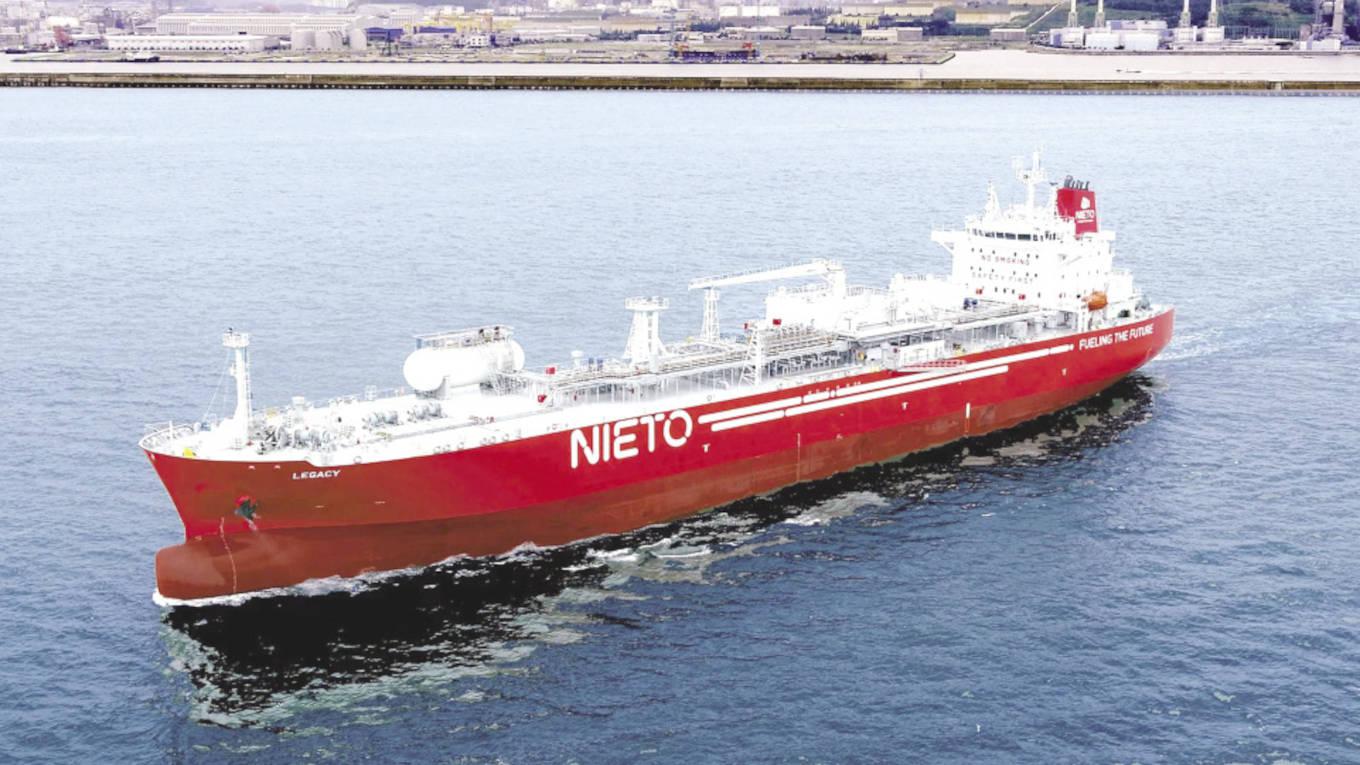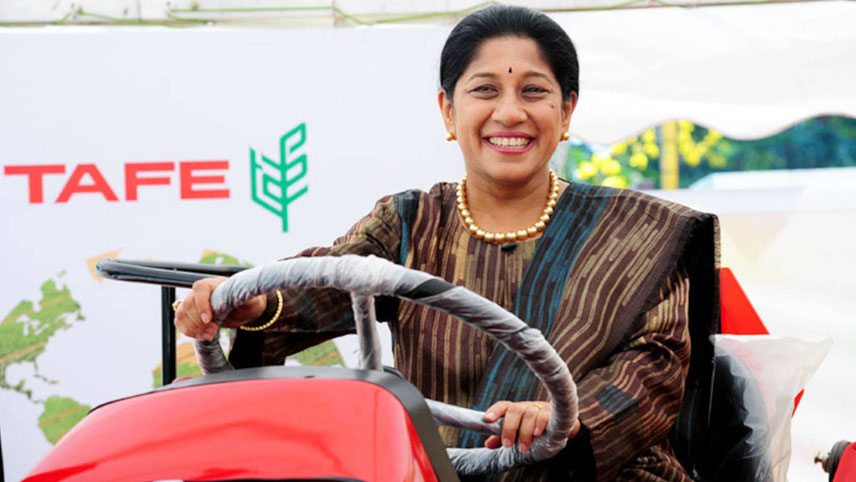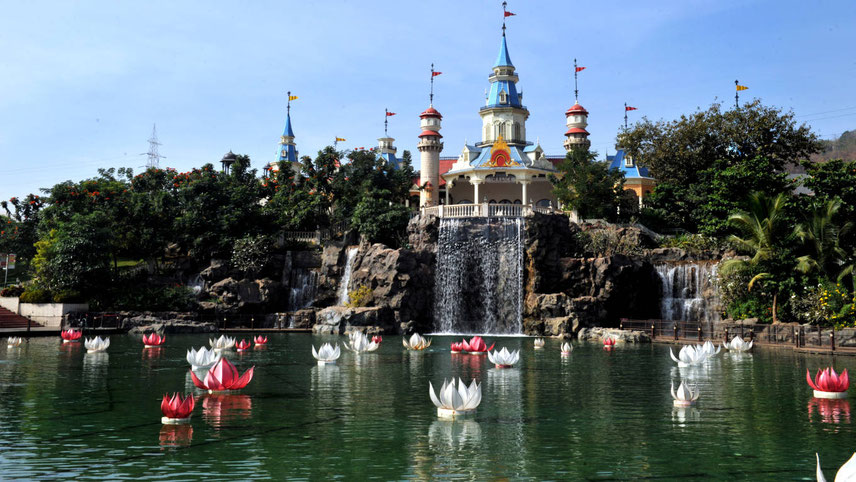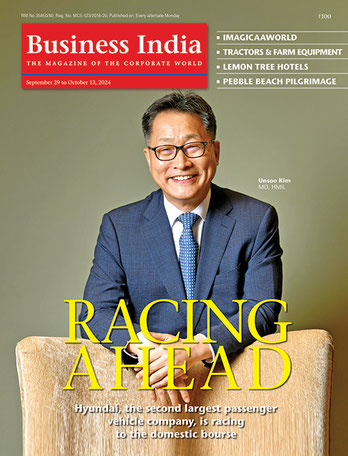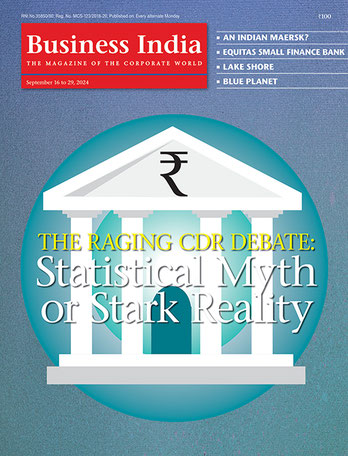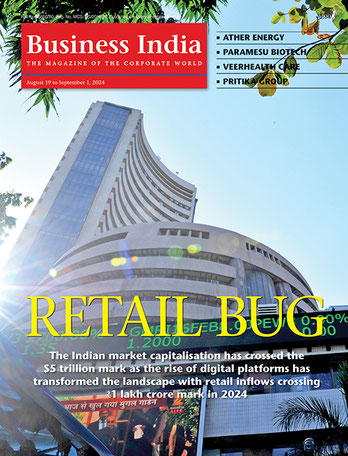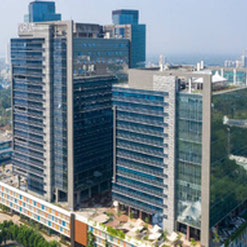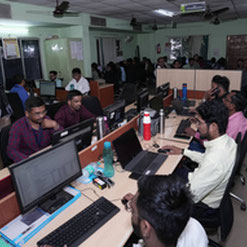-

Hojgaard: we continue to nurture our workers
As it celebrates its 50th anniversary, the Group reaffirms its unwavering dedication to strengthening its operations in India, harnessing the potential of its workforce and seafarers, and navigating the challenges of the maritime world with resilience, integrity, and compassion.
Anglo-Eastern remains steadfast in its commitment to excellence, innovation, and sustainability. The Group’s vision for the future extends beyond mere growth and expansion; it encompasses a holistic approach to responsible leadership, fostering a culture of safety, empowerment, and well-being for its people. “Together, with our partners, stakeholders, and the unwavering support of the Indian maritime community, we are poised to chart a course towards a brighter, more resilient future for Anglo-Eastern and the maritime industry at large,” he added.
India has long been a central part of Anglo-Eastern Group’s human resources strategy and accounts for approximately 70 per cent of its crew base, including 80 per cent of its merchant navy officers.
“We are now the largest employer of Indian seafarers worldwide and we intend to uphold the enduring nature of this relationship through the continued development of our maritime training facilities across the country. With over 66 per cent of India’s population in the 18-35 years age bracket, we believe that the region will be key in meeting the growing demand for skilled seafarers globally. We are proud that one in every 4 Indian maritime trainees hails from Anglo-Eastern and we intend to maintain this by investing in technology, improving training programmes, addressing fundamental needs, and fostering a culture of respect,” said Hojgaard.
“As we look back over the past 5 decades, what still holds true is our dedication to our operations in India and a commitment to navigating the challenges of the maritime world with resilience, integrity, and compassion. Anglo-Eastern will continue to harness the talent of Indian seafarers and I am eager to see all that we can do alongside the wider Indian maritime community over the next 50 years and beyond.”
Growth area
The phenomenal growth of Anglo-Eastern Group’s ship management business in the past 50 years has been spearheaded by many maritime industry stalwarts, including Peter Cremers, who joined the Group in 1985. A marine engineer, naval architect and an MBA, Cremers has been with Anglo-Eastern for more than 30 years. He has held various roles, from managing director to chief executive officer, and is currently the executive chairman of the Board of the Anglo-Eastern Group.
The cruise manning business also remains a potential growth area for the Anglo-Eastern Group worldwide, especially in India. With growth witnessed in this sector, the Group anticipates an increased demand for talent from the hospitality industry.
Niraj Nanda, Group Commercial Director of the Anglo-Eastern Group, said: “Post pandemic, unique travel opportunities remain in demand, with the global cruise market expecting to see a compounded annual growth rate of 11.5 per cent between now and 2030. Alongside our leisure management division, we are able to create unforgettable expeditions while ensuring the smooth operation of passenger ships under our management. We expect the number of vessels in this category to grow alongside increased tourism, with our expertise being relied upon as new investors enter the space, particularly in core markets such as North America.”
-

Nanda: ensuring smooth operation
Over the years, the Anglo-Eastern Group’s approach and dedication to leveraging technology have also garnered widespread recognition in the maritime industry. With the Group’s unwavering dedication to innovation, it continues to lead the way in revolutionising cargo/cruise fleet optimisation and setting a new standard for technical ship management by driving the global maritime industry towards a safer, more efficient, and sustainable future.
Fleet optimisation lies at the core of revolutionising maritime safety and efficiency. The Group’s cutting-edge digital solutions have redefined what were once considered operational necessities, transforming them into strategic advantages. With real-time tracking and monitoring of vessels, advanced fuel efficiency algorithms, and early unusual ship behaviour alerts, the Anglo-Eastern Group has demonstrated its commitment to enhancing safety and efficiency in maritime operations.
Swapnodeep Mondal, Group Director (Operations) of Anglo-Eastern Group, said that the Group’s fleet optimisation platform has significantly enhanced route planning, fuel efficiency, and overall performance of the ships. He said: “We strive to leverage technology to meet regulatory requirements and provide our clients with a measurable competitive asset. Our innovative approach to fleet optimisation is reshaping the industry and positioning the Anglo-Eastern Group as a leader in the technical ship management space.”
Vinay Singh, Group Managing Director - Marine HR, Anglo-Eastern Group, said: “Our ‘We Care’ programme sets a global standard for crew welfare services, and engages with seafarers to foster a sense of community. It also promotes health and wellness. Anglo-Eastern embraces social responsibility and is committed to empowering Indian seafarers for successful maritime careers. Our prime focus is to educate and train students and seafarers to the highest standards in the maritime industry and make learning enjoyable and effective in the workplace. We have an unwavering commitment to the ongoing growth and success of our people, and the communities that depend on us.”
Grooming seafarers
India’s most reputed maritime academic institution, owned and operated by the Anglo-Eastern Group near Mumbai, ‘Anglo Eastern Maritime Academy’ (AEMA) secured ‘1st Rank’ in pre-sea training institutes conducting courses for the second consecutive year at the National Maritime Day celebrations event held in India recently. Established in 2009, AEMA guarantees placement to all pass-outs on ‘on-board training berths’. This academy places over 400 deck and engine cadets of Indian nationality as trainees on cargo vessels every year and thereafter, assures employment to them subject to performance results.
The Anglo-Eastern Group was awarded ‘Outstanding Foreign Employer of Seafarers’ for the 17th time in the last 21 years at the 61st National Maritime Day celebrations held in Mumbai on 5 April 2024. “We are honoured to be recognised by the National Maritime Day Committee as an Outstanding Foreign Employer of Indian Seafarers. The Anglo-Eastern Group has been dedicated to the development of Indian seafarers for 50 years, and our commitment has been acknowledged by the Directorate General of Shipping of India on more than 15 occasions in the past two decades,” added Singh.
-
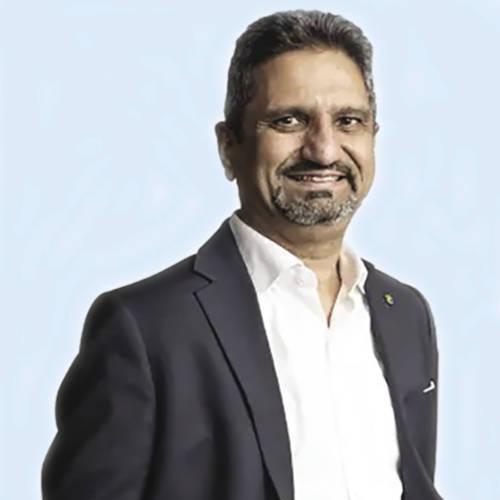
Singh: setting global standard
Singh anticipates significant growth in the Anglo-Eastern Group’s business operations in India in the coming years, consolidating its position as a market leader. “India’s share of the global seafaring population is only around 8 per cent at present, whereas its share of the global population stands at not less than 18 per cent. Globally, there are only around 1.5 million seafarers, and India contributes approximately 160,000 professionally certified seafarers and 250,000 total seafarers. Over the past decade, the number of Indian seafarers has experienced a significant growth rate of about 270 per cent, and the number of certificates of competency issued for entry-level deck officers has increased by 85 per cent. It is ‘India’s moment’ to increase its share in the global seafaring population, given its robust education system, young English-speaking population, and low per capita income. This will invariably bolster the growth of our Group’s ship management business operations in India over time, as the ship management business in India is likely to grow at an annual rate of over 6 per cent in the next few years,” he added.
Vinay Singh expressed his views after Prime Minister Narendra Modi, in his address to the nation, especially the youth, on 15 August, 2023, on the eve of India’s 77th Independence Day, said: “India has ‘democracy, demography, and diversity,’ which have the potential to realise the country’s dreams. While other countries are growing old, India is young. We have the highest number of youths in the world.”
To increase gender diversity in India’s ship management sector, the Anglo-Eastern Group has pledged to recruit more women seafarers. Vinay Singh said that India is on the verge of becoming a powerhouse of the world economy, and this big leap is impossible without the maximum possible participation of Indian women. Therefore, the Anglo-Eastern Group’s drive to train and include Indian women in mainstream professions through the shipping industry is absolutely necessary for the Indian ship management sector.
The Indian government recently issued advisories to encourage the inclusion of women in industries and sectors like maritime, which are traditionally dominated by men. The Anglo-Eastern Group has committed to annually hire at least 40 women seafarers who have undergone ‘ratings’ training – semi-skilled seafarers who carry out support work for officers in all departments aboard cargo ships. Those trained by Indian maritime institutes approved by the Directorate General of Shipping are eligible to apply. “The women ‘ratings’ will be subjected to our stringent hiring processes and thereafter will be employed aboard our cargo vessels. From this year onwards, we aim to employ at least 40 women ratings every year, and this number is likely to increase phenomenally in the years to come,” added Singh.
-

Cremers: wealth of experience
The Anglo-Eastern Group-promoted non-governmental organisation, ANAVI, has been conducting various social service activities on an ongoing basis in India since 2009. Vinay Singh said that the NGO’s activities aim to touch and improve the lives of Indian citizens who have not been fortunate enough to live a life where they could access even basic necessities.
The ship management sector in India, with around 153 large and mid-sized companies operating in the country, continues to hold “immense promise for the growth of the maritime industry” and the flourishing careers of Indian seafarers in the coming years.
India produces about 9.5 million college graduates each year, including 1.5 million technical and engineering graduates who seek suitable employment opportunities. The robust operations of the Anglo-Eastern Group’s India-based ship manning enterprise, Anglo-Eastern Ship Management India, continue to provide suitable employment to young men and women keen on joining the merchant navy. Vinay Singh said that for those who prefer not to work in an indoor environment, the merchant navy offers unique benefits, especially for younger individuals in India.
In its 50th anniversary year, the Anglo-Eastern Group consistently promotes a career in seafaring among Indian youth through novel initiatives in India.
-
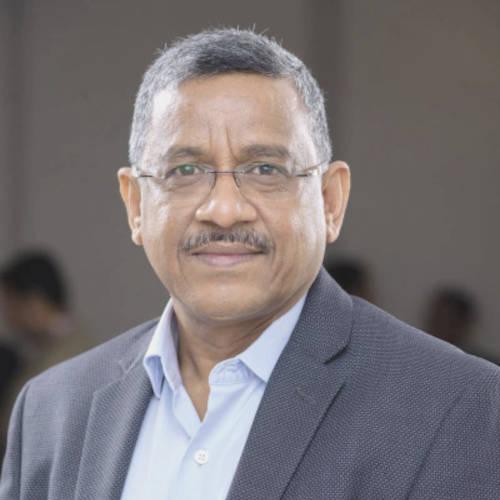
Gupta: Anglo-Eastern’s seafarers have grown steadily and are still growing
Indian seafarers are in great demand
India is one of the world’s top suppliers of crew to the global shipping industry, and Hong Kong-headquartered Anglo-Eastern Group is the largest employer of Indian seafarers. Its Indian arm, Anglo-Eastern Ship Management India, is headed by veteran marine engineer Vineet Gupta. Currently serving as Managing Director of Anglo-Eastern Ship Management India in its Mumbai office, Gupta joined the company in 2003. Hemang Palan recently interviewed him…
What are the major challenges faced by ship management companies operating in India?
Ocean-going ships primarily need trained and qualified seafarers for efficient and safe operations. Historically, the global supply of seafarers has always lagged behind the needed numbers. Indian seafarers have successfully positioned themselves as a solution to this short supply, and they have slowly become the preferred nationality for many foreign shipowners. Now, due to multiple global issues and crises, Indian seafarers are currently in great demand; this has led to an increase in the number of Indian seafarers as well as their employability.
On the downside, high demand has sparked a wage war, as many shipping companies are entering the Indian market with higher wages offered to lure seafarers. Our big challenge is to keep this under control to not outprice our advantage. As the largest employer of Indian seafarers, Anglo-Eastern Ship Management India, has always remained alert to this threat and never allowed a wage war to initiate from our side. We continue to be conservative in deciding seafarers’ wages.
Additionally, the demand for Indian seafarers in the global market has impacted the domestic supply of seafarers to Indian-flagged ships due to the disadvantages of the income tax regime. Hence, one of the major challenges is crew wages for Indian ship management companies, as the income tax regime is unfavourable for seafarers serving on Indian-flagged vessels. With this tax deduction, the take-home salary difference can be up to about 25-30 per cent.
Compensating for this may increase the per day operating cost of vessels by up to $400-500 (about 10 per cent), putting Indian ship management companies at a disadvantage in the global industry. All Indian shipowners may not accept this extra burden, so many Indian-registered vessels struggle to get competent seafarers to operate their vessels.
How do you foresee the growth of Anglo-Eastern’s Indian operations in the near future? Also, what is the existing pool of your Indian seafarers, and over the next 12 to 15 months, how many Indian seafarers are expected to be added to your existing pool?
The pool of Anglo-Eastern Indian seafarers has gradually increased to more than 27,000 in the last 50 years. At any given time, there are more than 12,000 Indian seafarers on board Anglo-Eastern Group ships. It is worth noting that Anglo-Eastern Indian seafarers bring close to half a billion US dollars home every year. There are shipowners associated with Anglo-Eastern Group for decades, and many new big shipowners who partnered with Anglo-Eastern in the last 25 years have stayed as happy customers. Anglo-Eastern’s seafarers have grown steadily and are still growing. Large growth is expected to come from the crew management business and due to the new developing interest of some shipowners in India’s growth story in shipping trade on the Indian coast.
What kind of role does Anglo-Eastern Maritime Academy (AEMA) play in skilling Indian youth keen on joining the merchant navy? Do female candidates enjoy any special incentives at AEMA?
AEMA has been entrusted with the task of identifying young men and women from all over India who have the right aptitude for this role and preparing them to meet our standards. The Anglo-Eastern Academy is at an advantage in attracting better talent due to assured jobs on board ships of one of the largest and best ship management companies, with vessels of all types and sizes.
The cadets at AEMA have the advantage of being backed by one of the biggest ship management companies in the world. AEMA cadets also receive adequate coaching in ‘soft skills’ or the human element, preparing them to face the challenges of sea life. Women seafarers are treated as special and are made welcome at AEMA, in this generally male-dominated industry. The selection process is purely merit-based and not gender-driven. We have a robust support system available for women seafarers to make them feel comfortable and confident in delivering their professional duties with full confidence and efficiency.
